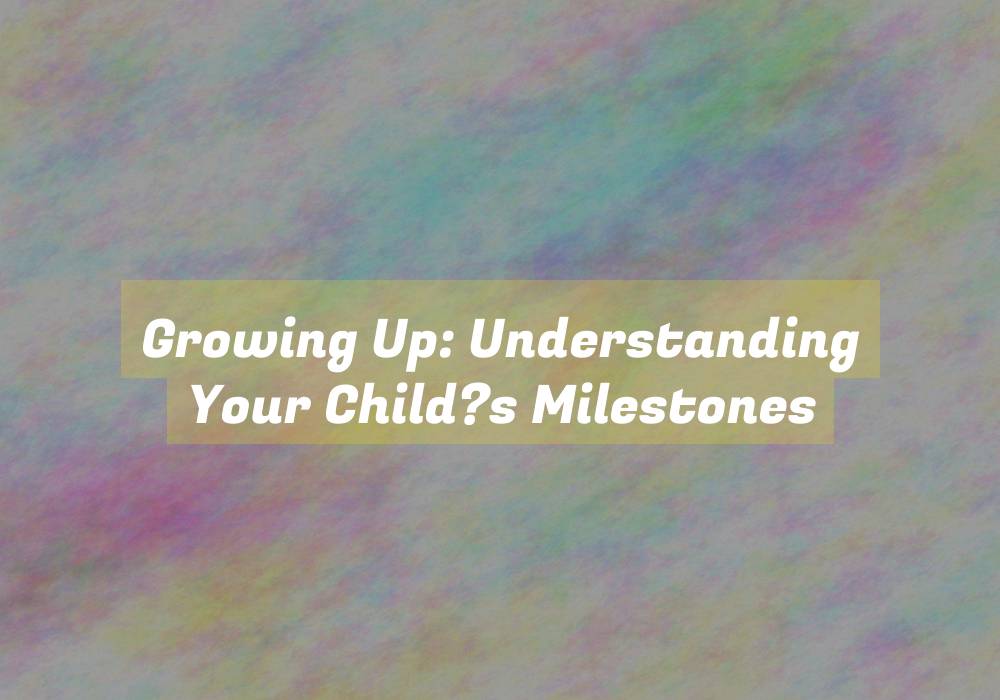Childhood Development Milestones: A Guide for Parents
Watching your child grow and achieve developmental milestones is an exciting journey. Understanding these milestones can help you support and nurture your child’s development. Here’s a general guide to key developmental stages from infancy to early adolescence:
Infancy (0-12 months):
- Lifts head while lying on stomach (around 2-4 months).
- Rolls over from back to stomach and vice versa (around 4-6 months).
- Sits with support (around 6-8 months).
- Crawls or scoots on the floor (around 8-10 months).
- Begins to stand with assistance (around 9-12 months).
- Responds to faces and voices.
- Explores objects with hands and mouth.
- Begins to understand cause and effect (e.g., shaking a rattle makes noise).
Social and Emotional Development:
- Forms strong emotional bonds with caregivers.
- Smiles, laughs, and shows joy.
- Begins to imitate facial expressions.
Toddlerhood (1-3 years):
Physical Development:
- Walks independently (around 12-15 months).
- Climbs stairs with assistance (around 18 months).
- Runs and jumps (around 2 years).
- Begins to use utensils for eating (around 2-3 years).
Cognitive Development:
- Expands vocabulary and begins forming simple sentences.
- Recognizes and names familiar objects and people.
- Engages in pretend play (e.g., pretending to feed a doll).
Social and Emotional Development:
- Experiences a range of emotions and begins to understand them.
- Shows independence and may display tantrums.
- Begins to play with other children, though parallel play is common.
Preschool (3-5 years):
Physical Development:
- Hops, skips, and jumps.
- Throws and catches a ball.
- Shows improved fine motor skills (e.g., using scissors).
Cognitive Development:
- Develops a more extensive vocabulary and sentence structure.
- Recognizes colors, shapes, and numbers.
- Begins to understand concepts of time (e.g., morning and night).
Social and Emotional Development:
- Forms friendships and plays cooperatively.
- Begins to understand and follow simple rules.
- Demonstrates empathy and shows concern for others.
Early School Age (6-8 years):
Physical Development:
- Develops better coordination and balance.
- Becomes more skilled in sports and physical activities.
Cognitive Development:
- Learns to read and write proficiently.
- Develops problem-solving skills.
- Begins to understand basic mathematical concepts.
Social and Emotional Development:
- Forms more complex friendships.
- Begins to understand and express emotions more verbally.
- Develops a sense of responsibility and independence.
Pre-Adolescence (9-12 years):
Physical Development:
- Experiences the onset of puberty (varying timelines).
- Grows rapidly and experiences changes in body composition.
Cognitive Development:
- Enhances critical thinking and logical reasoning skills.
- Expands knowledge in various academic subjects.
Social and Emotional Development:
- Forms deeper and more stable friendships.
- Experiences increased independence and decision-making.
- Begins to develop a sense of identity and self-awareness.
Understanding these milestones can provide a framework for observing your child’s growth. However, keep in mind that every child is unique, and developmental timelines can vary. If you have concerns about your child’s development, consult with healthcare professionals or specialists for personalized guidance.
